University Meets the Interests of Russia: Key Priorities of HSE Development
On March 19, the HSE Staff and Student Conference, which was attended by 727 delegates, took place at the Russia Expo. At the event, a vote for 87 candidates to the elected part of the HSE Academic Council was held, all of which received the required number of votes.
The conference participants gathered in Pavilion 75 of VDNH, where the achievements of each Russian region are presented. The site was deliberately chosen as HSE is a dynamically developing educational, scientific, and expert-analytical university in Russia.
First Deputy Chief of Staff of the Presidential Executive Office of Russia, Chairman of the HSE Supervisory Council Sergey Kiriyenko and Deputy Prime Minister of Russia Dmitry Chernyshenko greeted HSE employees and students.
HSE Rector Nikita Anisimov, through his speech, drew attention to how HSE University has changed over the past five years. He spoke on the main directions of future development.
He emphasized that HSE is a large and multidisciplinary university. The university team includes its graduates, who apply their knowledge in practice and implement technologies developed at the university.
Speaking about the development of science at the university, the HSE Rector noted the tremendous growth of R&D, stressing that more than half of external income is earned on the open market.
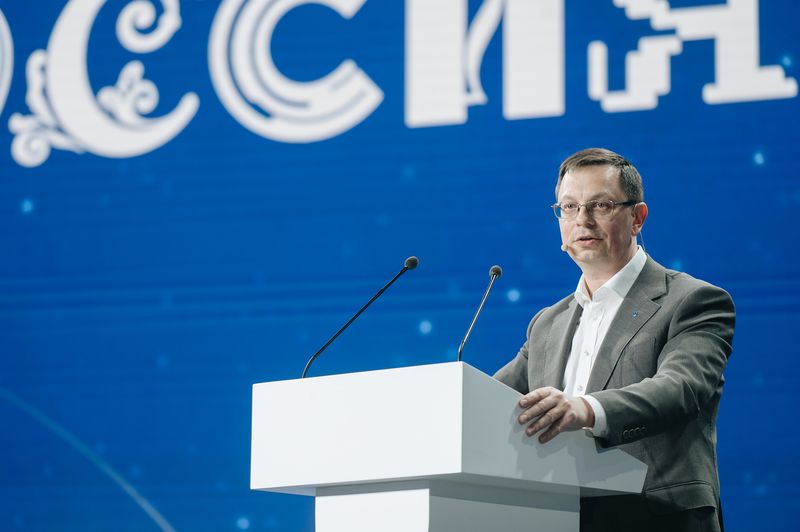
It is worth noting that HSE University remains open to the world to develop cooperation with international scientists, universities, and research centres. In 2022, HSE University became the only major Russian university that did not reduce the number of articles indexed in international databases, and in 2023, it even increased.
Nikita Anisimov stressed the importance of developing and diversifying international scientific cooperation. HSE University invites colleagues from around the world to participate in joint research. ‘As rector, I am ready to sign a partner agreement with organisations from any country if they meet the interests of our university and Russia,’ stated Nikita Anisimov.
The HSE Rector paid special attention to the infrastructure of the University. It is based on historical buildings where famous people lived, studied, or worked in previous centuries. Over the course of 10 years, a significant amount of resources have been invested in building renovation, as modern infrastructure is an important component of a world-class university.
‘We must remember that HSE is a technological, social, and global university, the best university in the country, open to the whole world,’ concluded HSE Rector.
HSE teachers and researchers also spoke at the conference.
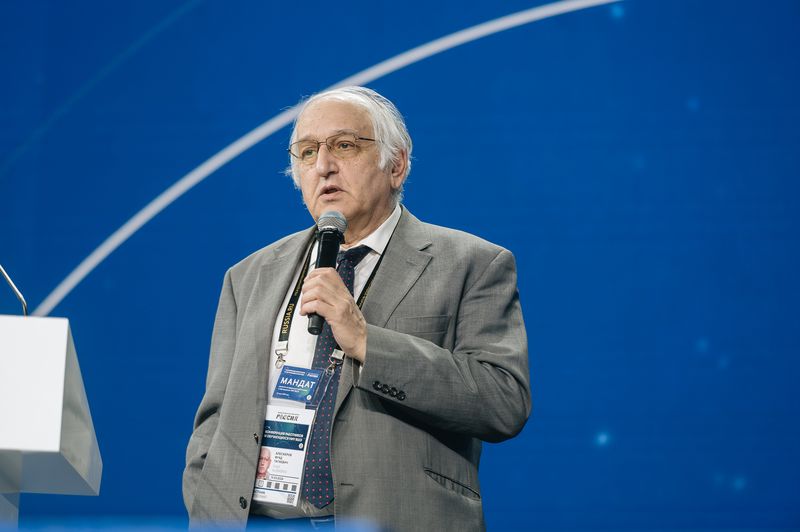
Fuad Aleskerov, Head of the Department of Mathematics at the Faculty of Economic Sciences, encouraged that contacts with colleagues from different countries were maintained. ‘They are friendly to us, ready to work together, invite us to seminars and conferences. Last October, I gave lectures to teachers and graduate students in Paris. Contacts with the BRICS countries are expanding. HSE University is known and loved all over the world,’ he said.
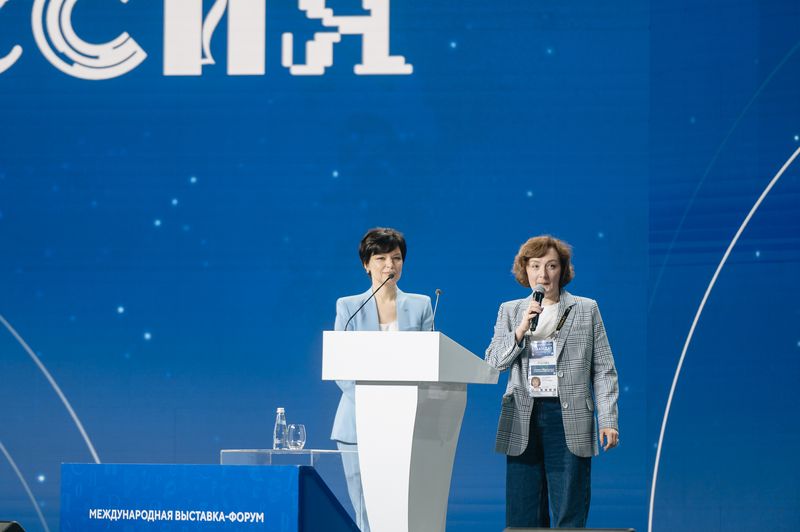
Maria Molodchik, Professor at the Faculty of Computer Science, Economics, and Social Sciences at HSE University in Perm, gave examples of effective cooperation between colleagues from different university campuses. ‘We interact and thus complement each other's competencies,’ she explained.
‘Over the past five years, HSE University has grown in almost all aspects, and this proves the tremendous resilience of our team, Russian academic and educational community, and the intellectual power of Russia; and we are a part of it,’ said Yaroslav Kuzminov, Academic Supervisor of HSE University.
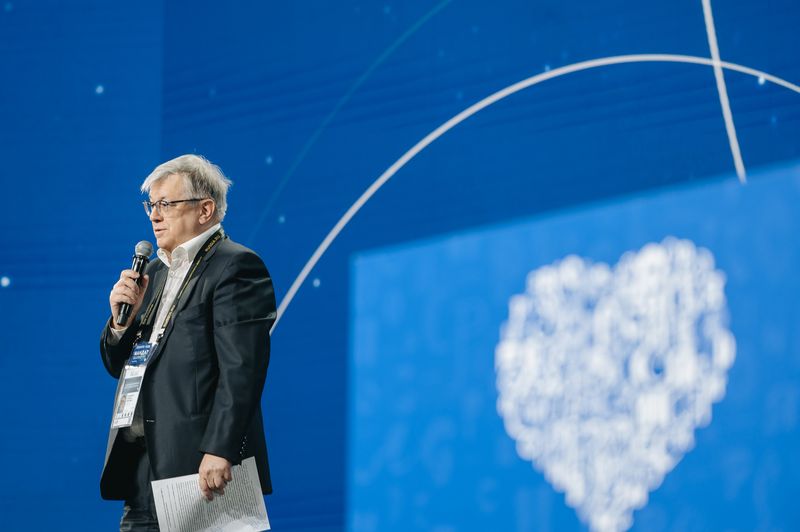
Adrian Selin, Dean of the School of Arts and Humanities at HSE University in St Petersburg, focused on the need to preserve and develop expertise at HSE University not only in the field of artificial intelligence, but also in social sciences and humanities. He proposed to open new graduate schools in the humanities.
Anton Kasparov, Director of the Executive Office of the HSE Student Council, noted that students represented about one hundred delegates at the conference.
Mikhail Nazarov, Deputy Dean of the HSE Faculty of Management (Nizhny Novgorod) spoke out regarding the students’ request for more active use of digital technologies in teaching inter-campus disciplines. Yulia Falkovich, Director of the Centre for Scholarly Integration, suggested developing platforms at the university where scientists, teachers, administrators, and students could meet, communicate, and collaborate more effectively.
After the presentations, an election for new members of the HSE Academic Council was held.
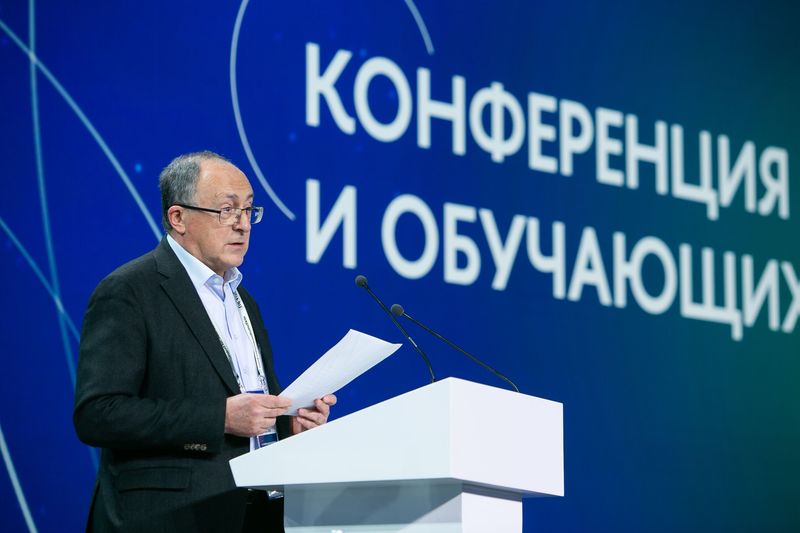
Chair of the Counting Committee, HSE Vice President Lev Yakobson, announced the results of the vote. The elected part of the Academic Council included all 87 delegates.
Concluding the conference, Nikita Anisimov thanked previous members of the Academic Council, congratulated the new members on their election and invited them to the first meeting.

